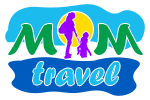The US Travel Technology Market Forecast: Exploring the Twenty-One Billion Dollars Growth Opportunity with a Focus on AI, Mobile Apps, and E-commerce Advancements
The global travel technology market is set for substantial growth, and the US is at the forefront of this transformation. From the integration of AI-driven customer service platforms to the widespread adoption of contactless payment solutions, the travel technology sector …
The global travel technology market is set for substantial growth, and the US is at the forefront of this transformation. From the integration of AI-driven customer service platforms to the widespread adoption of contactless payment solutions, the travel technology sector is reshaping how travel agencies, airlines, and hotels operate. According to the latest report by Allied Market Research, the travel technology market in the US was valued at $9.4 billion in 2022 and is expected to reach $21 billion by 2032, with a remarkable 8.6% compound annual growth rate (CAGR). The rapid adoption of digital technologies, coupled with the shift in consumer preferences towards contactless solutions and AI-based services, has fueled this expansion. As the world’s largest travel market, the US is uniquely positioned to drive innovation and set trends that will influence global travel technology markets.
Market Drivers
Several factors contribute to the remarkable growth of the travel technology market in the US:
- Increased demand for AI and automation: Travel agencies, hotels, and airlines are incorporating AI for personalized experiences, streamlined bookings, and enhanced customer service.
- Rise in contactless payment and voice search technologies: The demand for contactless solutions accelerated after the pandemic, becoming a staple in the travel sector.
- E-commerce integration in travel services: The boom in online travel bookings has significantly increased the adoption of travel technology, with platforms providing seamless, real-time reservations and management tools.
Key Market Trends
The travel technology landscape in the US is characterized by several emerging trends:
- Contactless Solutions
After the COVID-19 pandemic, contactless solutions have become more important than ever. From contactless check-ins at hotels to mobile payments and QR code-enabled boarding passes, the emphasis on minimizing physical interaction continues to shape travel behaviors. This trend, which started as a health and safety measure, is now a permanent shift in the way consumers interact with travel services. - AI and Automation
The increasing use of chatbots and AI-driven customer support platforms is transforming the customer service experience. These technologies help businesses efficiently manage bookings, cancellations, and customer inquiries, reducing wait times and improving user satisfaction. - Mobile Applications and Booking Platforms
Mobile applications for flight bookings, hotel reservations, and itinerary management continue to dominate the travel technology market. These platforms provide consumers with instant access to booking systems, reviews, maps, schedules, and real-time updates, enhancing the convenience of travel. - Smart Tourism Solutions
With the advent of smart tourism apps, travelers now have access to real-time information on weather conditions, flight statuses, hotel availability, and even virtual tours. These innovations help to create more personalized and seamless travel experiences.
The Travel Technology Market in the US by Component
The platform segment leads the travel technology market in the United States, accounting for the majority of the market share. This is primarily due to the widespread use of platforms that facilitate online bookings, reservations, and the management of various travel services. In particular, mobile applications designed for travel and hospitality have been pivotal in this shift. These apps not only help consumers make bookings but also provide essential features such as flight status updates, weather forecasts, and personalized travel suggestions.
On the other hand, the service segment of the travel technology market is expected to exhibit the fastest growth, projected to increase at a CAGR of 10.9% during the forecast period. This growth can be attributed to the increasing reliance on managed services for reservations, itinerary changes, and real-time communication between service providers and customers.
The Travel Technology Market in the US by Application
- Travel Industry: The travel industry is the largest contributor to the travel technology market in the United States, contributing nearly half of the market share in 2022. Automated bookings, mobile payments, and backend tools used by travel agencies are essential to streamlining operations and providing seamless experiences for travelers.
- Tourism Industry: The tourism industry is rapidly embracing technology, with smart tourism apps gaining traction. These apps help users plan their trips, track bookings, store travel documents, and access real-time updates, such as flight statuses and weather forecasts. The tourism industry is expected to experience a significant growth rate, with a projected CAGR of 10.8%.
- Hospitality Industry: Hotels and resorts are also investing heavily in travel technology to improve customer service, streamline bookings, and enhance guest experiences. Features like contactless check-ins, smart room features, and AI-driven service recommendations are becoming standard.
The Travel Technology Market in the US by End User
The commercial sector is expected to dominate the travel technology market in the US by 2032, driven by the continued growth of online booking platforms for airlines and hotels. These platforms not only facilitate easier booking experiences for travelers but also enable businesses to increase occupancy rates and optimize revenue. The rise of corporate travel and business trips has also contributed to the growing reliance on travel technology in this segment.
However, the individual traveler segment is expected to show the fastest growth during the forecast period, with a projected CAGR of 10.5%. The increasing use of mobile devices and the availability of travel apps allow consumers to make informed decisions about their trips, find the best deals, and access a wealth of information, including reviews, photos, and personalized travel recommendations.
The Travel Technology Market in the US by Region
- North America: In 2022, North America accounted for nearly one-third of the global travel technology market, with the US taking the lead. The region’s growth is driven by innovations in the metaverse, chatbots, and augmented reality (AR) solutions within the travel industry. Furthermore, the integration of blockchain technology to enhance security and data privacy is playing a significant role in the region’s dominance.
- Asia-Pacific: The Asia-Pacific region is expected to witness the fastest growth in the travel technology market, with a projected CAGR of 12.1%. This is largely due to the region’s increasing adoption of e-commerce platforms and the growing demand for travel services. In countries like China, India, and Japan, mobile applications and online platforms offering discounts and loyalty programs are fueling growth in the travel technology market.
COVID-19 Impact on the US Travel Technology Market
The COVID-19 pandemic significantly accelerated the digital transformation of the travel industry in the United States. The demand for contactless solutions surged as a response to health and safety concerns. Airlines, hotels, and travel agencies quickly adapted to the new reality by implementing mobile check-ins, touchless transactions, and enhanced hygiene protocols. Additionally, AI-driven customer service became crucial in managing disruptions, cancellations, and rescheduling, ensuring that travelers remained informed in real-time.
The pandemic also spurred investments in e-commerce platforms, mobile apps, and data analytics, allowing travel companies to better understand evolving customer behaviors and preferences.
Leading Market Players
Several key players are shaping the future of travel technology in the US, including:
- Travelport
- Amadeus IT Group SA
- Tramada Systems Pty Ltd.
- Sabre GLBL Inc.
- Lemax Ltd.
- Digitrips
- Qtech Software Pvt.Ltd.
- Trip Solutions
- Avani Cimcon Technologies
- WebCRSTravel Technologies Pvt.
These companies are at the forefront of adopting cutting-edge technologies like AI, blockchain, and machine learning to enhance the efficiency and scalability of their services, helping to drive the growth of the travel technology market.
Conclusion
The US travel technology market is poised for exceptional growth over the next decade. Innovations in AI, mobile apps, contactless solutions, and e-commerce platforms are reshaping the way consumers interact with travel services. As the market expands, both commercial and individual travelers will continue to benefit from enhanced convenience, personalized experiences, and streamlined processes. The US is expected to remain a global leader in travel technology, setting trends that will influence the entire industry worldwide. With an expected market value of $21 billion by 2032, the opportunities for both established companies and new players in the travel tech space are immense.
The post The US Travel Technology Market Forecast: Exploring the Twenty-One Billion Dollars Growth Opportunity with a Focus on AI, Mobile Apps, and E-commerce Advancements appeared first on Travel and Tour World


Comments and Responses
Please login. Only community members can comment.